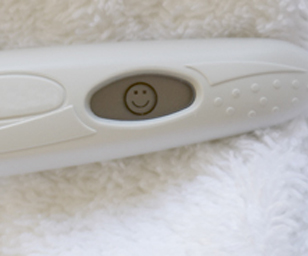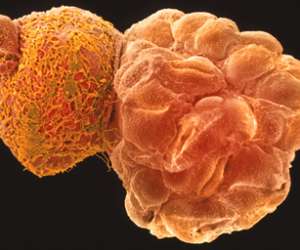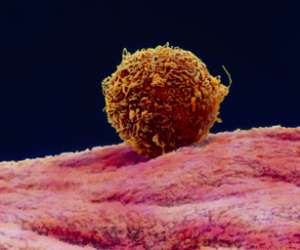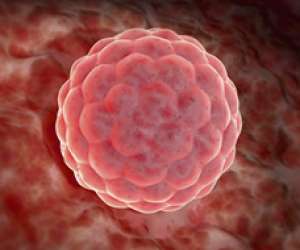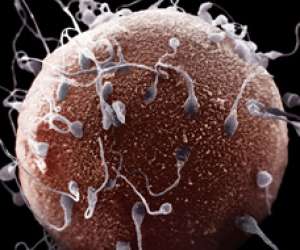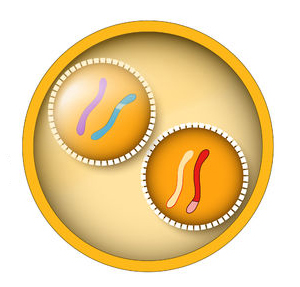
What's happening inside
Here is a diagram of a human egg cell 24 hours after fertilization. Around the egg is a thick layer (yellow) that has now become impenetrable. The circles inside, or pro-nuclei, contain genetic material from the mother and father before it has fused.

